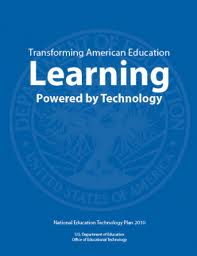Small Business Innovation Research Program
The Small Business Innovation Research (SBIR) program was established by Congress in 1982 to provide federal research and development (R&D) funding to stimulate the small business sector and to strengthen the national base for technological innovation. At present, 11 Federal agencies, including the U.S. Department of Education, provide more than $2 billion annually to for-profit small business firms and their partners. The ED SBIR Program provides awards for the R&D of commercially viable products that improve student learning and teacher practices, or for products or services in the area of assistive technology. There are two separate SBIR Programs administered by the National Institute on Disability and Rehabilitation Research (NIDRR) and the Institute of Education Sciences. Each of these offices holds one annual competition.
Grant Program for Statewide, Longitudinal Data Systems
The purpose of this program is to provide grants to state educational agencies to enable them to design, develop, and implement statewide, longitudinal data systems to efficiently and accurately manage, analyze, disaggregate, and use individual student data, consistent with the Elementary and Secondary Education Act of 1965. The long-term goal of the program is to assist states in generating and using accurate and timely data to meet reporting requirements, support decision-making at state, district, school, and classroom levels; and facilitate research needed to eliminate achievement gaps and improve learning of all students.
The purpose of this program is to: (1) improve results for children with disabilities by promoting the development, demonstration, and use of technology; (2) support educational media services activities designed to be of value in the classroom setting to children with disabilities; and (3) provide support for captioning and video description that is appropriate for use in the classroom setting.
The State Grant for Assistive Technology Program (# 84.224A) supports state efforts to improve the provision of assistive technology to individuals with disabilities of all ages through comprehensive, statewide programs that are consumer responsive. The State Grant for Assistive Technology Program makes assistive technology devices and services more available and accessible to individuals with disabilities and their families. The program provides one grant to each of the states, the District of Columbia, Puerto Rico, and the outlying areas. The National Activities program (# 84.224B) provides information and technical assistance through grants, contracts, or cooperative agreements on a competitive basis, to individuals, service providers, states, protection and advocacy entities and others to support and improve the implementation of the ATA. The Alternative Financing Program (# 84.224C) provides grants for the establishment and maintenance of programs that enable individuals with disabilities to purchase Assistive Technology devices and services through financial loans. Authorization for new grants ended in FY 2005, but existing Alternative Financing Programs must continue on a permanent basis.
National Institute on Disability and Rehabilitation Research
It is the mission of NIDRR to generate, disseminate and promote new knowledge to improve the options available to disabled persons. The ultimate goal is to allow these individuals to perform their regular activities in the community and to bolster society’s ability to provide full opportunities and appropriate supports for its disabled citizens. Toward this end, NIDRR conducts comprehensive and coordinated programs of research and related activities to maximize the full inclusion, social integration, employment, and independent living of individuals of all ages with disabilities. NIDRR’s focus includes research in areas such as employment; health and function; technology for access and function; independent living and community integration; and other associated disability research areas.
The purposes of Ready-to-Learn Television are: (1) the development of educational programming for preschool and early elementary school children and their families; (2) the development of educational television programming and printed materials to increase school readiness for young children in low income families and to increase family literacy; and (3) the development of accompanying support materials and services that promote the effective use of educational television programming.


